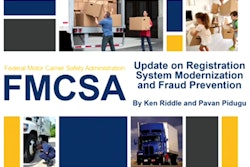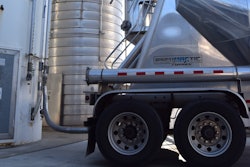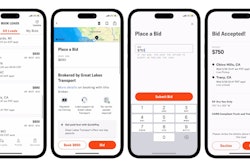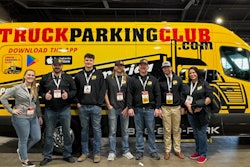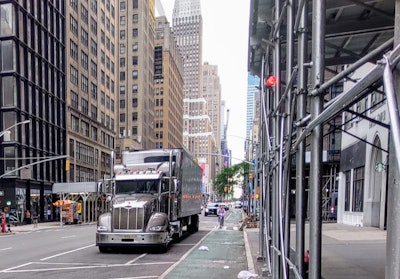
The Trucking Association of New York (TANY) last week filed a lawsuit against the New York City Metropolitan Transportation Authority (MTA) over a congestion pricing framework in New York City that was supposed to begin at the end of the month.
The lawsuit, filed in the Southern District of New York on May 30, argues that the congestion pricing policy unfairly targets trucking and logistics companies, which are charged far higher rates than passenger vehicles. TANY and its members are not fundamentally opposed to congestion pricing, the group said. However, TANY is fighting to overturn the current version of the plan with hopes to improve the plan to reduce its adverse impacts and introduce parity for truckers and other transporters.
Less than a week after the lawsuit was filed, according to local reports Wednesday morning, New York Gov. Kathy Hochul is working to indefinitely postpone the implementation of the tolling plan, which was set to take effect June 30, citing “unintended consequences for New Yorkers at this time.”
A court document addressing U.S. District Court Judge Lewis J. Liman filed June 5 on behalf of the MTA informed the court that Hochul directed MTA to pause implementation of the program: “As a result, at this time, we no longer anticipate implementation of the Program on the prior expected implementation date of June 30, 2024.”

[Related: NYC proposes fee for trucks to enter]
If the plan were to take effect, vehicles would be charged a toll to enter the Congestion Relief Zone (formally referred to as the Manhattan Central Business District) -- the area of Manhattan south of and including 60th Street, excluding the FDR Drive, West Side Highway/Route 9A, and the Hugh L. Carey Tunnel connections to West Street.
Large trucks (tractor-trailers) using E-ZPass would be charged $36 to enter the area during the peak period, which is defined as 5 a.m. to 9 p.m. on weekdays and 9 a.m. to 9 p.m. on weekends. Trucks would be charged $9 to enter the zone during the overnight periods. Single-unit box trucks would be charged $24 during peak hours and $6 overnight.
On the flip side, passenger vehicles would be charged $15 to enter during peak hours and $3.75 at night.
The city also planned to offer crossing credits for vehicles using a valid E-ZPass and entering during the peak period via one of the four tolled entries: Lincoln Tunnel, Holland Tunnel, Queens-Midtown Tunnel, and Hugh L. Carey Tunnel. The credit amount was to be up to $12 for small trucks and up to $20 for large trucks. No crossing credits would be offered overnight when the toll is reduced by 75% from the peak period toll.
“Despite making up only 4% of all traffic in the Zone, commercial trucks bear by far the biggest burden under the Tolling Program, while other classes of vehicle that make up more than half of all traffic in the Zone are fully exempt,” TANY said in its lawsuit, referencing an exemption for taxis and Uber and Lyft drivers. “To make the unfairness of this tolling structure even worse, TANY trucks are unable to take advantage of subways and buses to complete their necessary deliveries, so they have no choice but to enter and re-enter the Zone as many times per day as required to meet their customers’ needs.”
Through its lawsuit, TANY was seeking a declaratory judgment that the tolling program is unconstitutional and a preliminary injunction preventing the implementation of the toll.
[Related: The worst truck bottlenecks in America deliver $95 billion in congestion costs]

